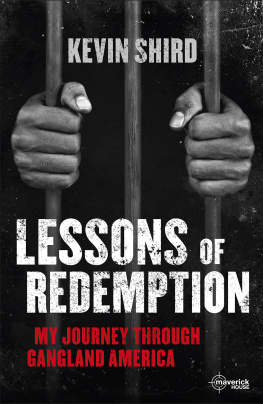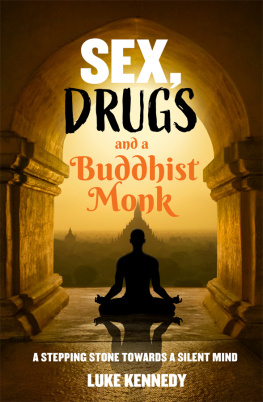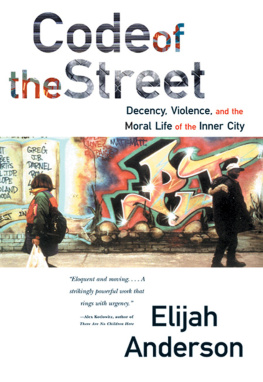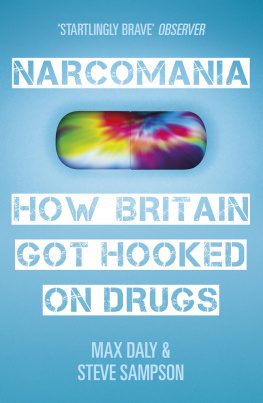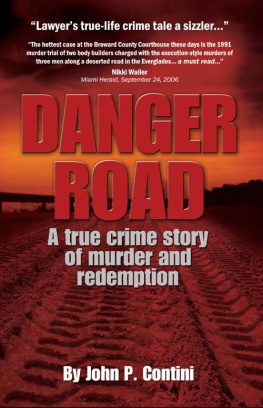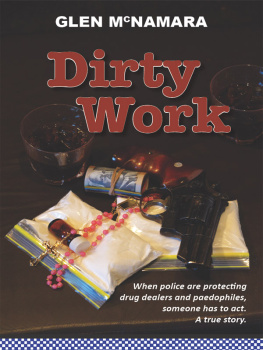Code of the Suburb
Fieldwork Encounters and Discoveries
A series edited by Robert Emerson and Jack Katz
Code of the Suburb
Inside the World of Young Middle-Class Drug Dealers
Scott Jacques and Richard Wright
The University of Chicago Press
Chicago and London
Scott Jacques is assistant professor of criminal justice and criminology in the Andrew Young School of Policy Studies at Georgia State University. Richard Wright is professor in and chair of the Department of Criminal Justice at Georgia State University and the author of five books.
The University of Chicago Press, Chicago 60637
The University of Chicago Press, Ltd., London
2015 by The University of Chicago
All rights reserved. Published 2015.
Printed in the United States of America
24 23 22 21 20 19 18 17 16 15 1 2 3 4 5
ISBN-13: 978-0-226-16408-3 (cloth)
ISBN-13: 978-0-226-16411-3 (paper)
ISBN-13: 978-0-226-16425-0 (e-book)
DOI: 10.7208/chicago/9780226164250.001.0001
Library of Congress Cataloging-in-Publication Data
Jacques, Scott (Scott Thomas), author.
Code of the suburb : inside the world of young middle-class drug dealers / Scott Jacques and Richard Wright
pages cm
Includes bibliographical references and index.
ISBN 978-0-226-16408-3 (cloth : alkaline paper)
ISBN 978-0-226-16411-3 (paperback : alkaline paper)
ISBN 978-0-226-16425-0 (ebook)
1. Drug dealersGeorgiaAtlanta Suburban Area. 2. Suburban crimesGeorgiaAtlanta. I. Wright, Richard, 1951 author. II. Title.
HV5833.A79J33 2015
363.4509758'231dc23
2014047608
This paper meets the requirements of ANSI/NISO Z39.48-1992 (Permanence of Paper).
To Mark Cooney and the Department of Criminology and Criminal Justice at the University of MissouriSt. Louis
Contents
Sitting down to thank all those who have helped with this book it suddenly struck us that we should have thought to keep a list. To anyone we leave unmentioned: please forgive us; we owe you a drink. First and foremost, we are indebted to all of the dealers we interviewed, especially those who have continued to serve as a sounding board and who remain friends to this day. Indispensable financial support was provided by Lynn and Tom Jacques, Bill and Gerry Baxter, the University of Georgias Center for Undergraduate Research Opportunities, and a Graduate School Dissertation Fellowship from the University of MissouriSt. Louis. Thanks to Mary Beth Walker for giving Scott a semester off from teaching, during which this book was completed. Colleagues who lent us an ear and encouraged the project include Frank Cullen, John Eck, Bonnie Fisher, Robbie Jacques, Janet Lauritsen, Marie Lindegaard, Jody Miller, Danielle Reynald, Rick Rosenfeld, Eric Stewart, Volkan Topalli, John Wooldredge, and others at the University of MissouriSt. Louis, the Netherlands Institute for the Study of Crime and Law Enforcement, the University of Cincinnati, and Georgia State University. Student assistants whom we hope to soon call colleagues include Liz Bonomo, Katie Busey, Mark Curtis, Tim Dickinson, Kate Elvey, Charles Hogan, Nicole Lasky, Leslie Lawson, Julia Mesler, and Clay Sabourin. Enough cannot be said about our acquiring editor, Doug Mitchell; series editors, Jack Katz and Robert Emerson; copy editor, Pam Bruton; editorial associate, Tim McGovern; promotions director, Levi Stahl; and the anonymous reviewerswe owe all of them a drink too. Last, but far from least, we thank Mark Cooney, who inspired and encouraged the research on which this book is based, and Andrea Allen Jacques, who critiqued drafts of the manuscript and provided moral support.
Studying Suburban Drug Dealers
This book explores the world of young, middle-class, suburban drug dealers as seen through the eyes of a group of dealers themselves. What leads these adolescents to start selling? How do they conduct business? What problems do they face? How do they handle those problems? Why do they quit?
The dealers on which this book is based grew up in the commuter zone of Atlanta, Georgia. The place is authentic in its own way, but it is not heterogeneous.
Here, the inhabitants like to say that everybodys somebody. That might be because the citizenry and local government effectively have made it impossible for nobodies to live there. Zoning regulations forbid apartment buildings and multifamily dwellings. Of the almost twenty thousand people living in Peachville at the time of the study, 90 percent were White, 90 percent had at least a high school degree, and the median yearly household income was almost $70,000. Looking around, it actually appears to be even more homogeneous and prosperous than those figures suggest.
The town is orderly and peaceful in a way that some outsiders might consider boringly conventional. That is exactly how the natives like it. The most obvious social problems are barking dogs and speeding teenagers. Few of the adult residents are aware that an underground drug market flourishes in their midst. That market is driven by their sons and daughters, who supply both the demand for drugs and the drugs themselves. Peachville is peaceful, but like many suburban locales across the nation, it is not as crime free as it appears on the surface or as police reports suggest.
The accounts presented throughout this book are based on the lives of thirty young suburban drug dealers. The lead author, Scott Jacques, was a member of their peer group prior to becoming a card-carrying social scientist. He grew up in the town next door to Peachville, which we will refer to as Flynton. Flynton is less prosperous and homogeneous than Peachville but still solidly middle class and suburban. In 1999 Scotts family moved so that he and his younger brother could attend school in the Peachville system. From then until Scott graduated from the flagship state universitywell known as a so-called party school less than an hours drive awayhe was surrounded by the same cast of characters. Some of these individuals, like Robert, Dave, Bruce, and Pete, among others, were Scotts friends, and he remains in close touch with many of them to this day. In the course of these friendships, Scott had the opportunity to observe what these dealers did, to ask them questions, and to seek to understand their mind-set and behavior.
The initial inspiration for a formal study of young suburban drug dealers arose when Scott was offered an opportunity to do field-based research to earn the college credits he needed to graduate with honors. This opportunity required him to systematize his interest in the drug-dealing activities of his peers by moving beyond friendly interaction and undertaking semistructured, open-ended, audio-recorded interviews with each of them, looking back on their days in high school. Those interviews, in turn, generated the quoted material that lies at the heart of this book.
The first eighteen drug dealers included in the study were Scotts friends and were formally recruited simply by being asked, Will you do me the favor of letting me interview you about your drug dealing? None of these individuals were paid for their cooperation, although a few received gifts of appreciation, such as a six-pack of beer or a batch of his moms homemade chocolate chip cookies. The other twelve respondents were not Scotts friends but rather friends of his friends and were also from Peachville or, in a few cases, from another suburban, middle-class community such as Flynton. They were recruited with the help of three individuals, two of whom had been interviewed themselves. The first eight of these friends-of-friends were paid $20 for their participation; the last four agreed to take part as a favor and declined to be compensated.


